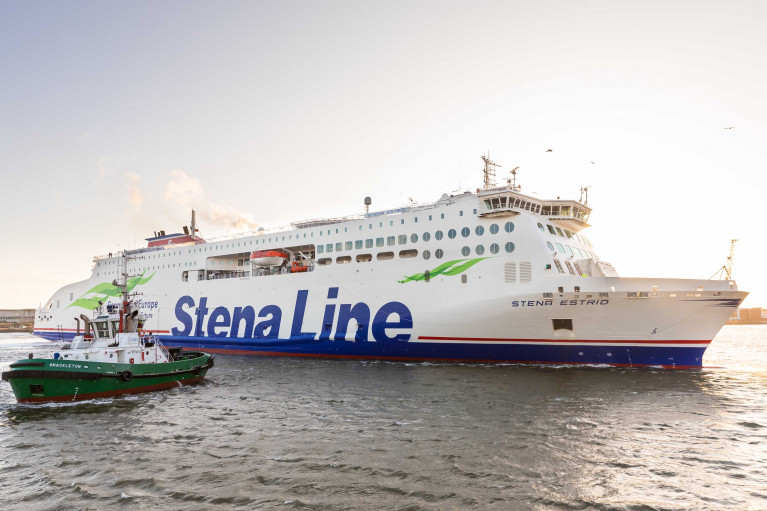Displaying items by tag: Supply Chain Open
Ferry operator Stena Line in response to the impact of the Coronavirus as it tightens its grip on everyday life across Europe, has moved to reassure freight and travel customers.
The operator is taking every precaution possible to help ensure the safety of customers and employees, whilst maintaining the supply lines for vital medical goods and food supplies.
In the last few weeks Stena Line’s European business has been impacted significantly by COVID-19, but despite crippling trading circumstances, the biggest ferry company in Europe remains resolute in its determination to keep services going in strict adherence to Government guidelines on travel, as well as the very latest medical advice on helping to reduce the risk of spreading COVID-19.
Stena Line is asking customers to adhere to Government travel guidelines and the firm has put a host of measures in place to keep its customers and employees safe when travelling on its vessels. To assist passengers who need to reschedule their trips, Stena Line has also committed to waiving amendment fees for all travel bookings, until 30th April 2020.
All of Stena Line’s ferries are continuing to run on schedule, however, some services have restricted passenger numbers in order ensure strict social distancing guidelines are adhered to.
Stephen Bryden, Group Head of Onboard Sales & Services said: “We really are in uncharted waters right now so we are having to dig deep and use all of our experience and take the advice of the Governments where we operate, and their medical experts, to help us navigate our way through this crisis to. Keeping our customers and colleagues safe while keeping our important services operational is our main priority at the moment.”
“We are acutely aware of the responsibility we have to help maintain vital supply lines between the UK and Ireland, as well as Continental Europe. Our services and work colleagues will be put under immense strain in the weeks and months ahead. We appreciate people will still need to travel for essential reasons and we will be there to support them.”
“Now, more than ever, Freight supply lines are vital to help keep the supermarkets stocked and ensure critical medicines and medical equipment are delivered. We will do everything within our means to keep these important logistics routes open and functioning.”
Recently Stena Line has introduced a large number of additional measures on top of its existing high health and safety standards in a bid to help safeguard its passengers and crew during the COVID-19 crisis including the following:
· Staged embarkation and disembarkation, with all arriving passengers asked to clean hands
· Hand sanitisers available for customers and staff use throughout
· ‘High contact’ surfaces sanitised on a regular basis
· Freight drivers have their own cabin
· Social and Counter Distancing measures in line with governmental recommendations
· Electrostatic Fog Machine for deep cleaning of specific areas (Irish Sea routes)
· Cashless payments are requested in all payment points
· Personal Protective Equipment (PPE) kits for and staff
· Use of contactless thermometers to help should someone show any symptoms
· All newspapers & magazines removed to reduce the risk of cross contamination
· Isolation cabins have been allocated and set aside should they be needed
· Daily staff briefings for crew and strict guidelines to adhere to
· Detailed Evacuation Plan (ship and shore) for affected customers/crew
Stena Line will continue to operate its Ireland and UK sailing schedules as normal, however, given the now daily changes in prevailing circumstances and Government advice, sailing schedules are naturally under constant review.
For the very latest information, Stena Line customers are advised to contact: 01 907 5555 (Ireland) and 03447 707 070 (UK)
For information on the Coronavirus click HERE.




























































